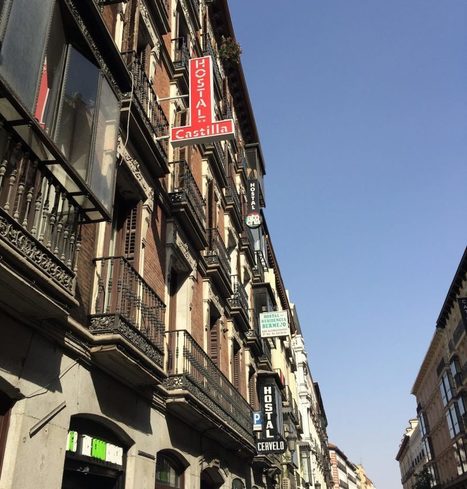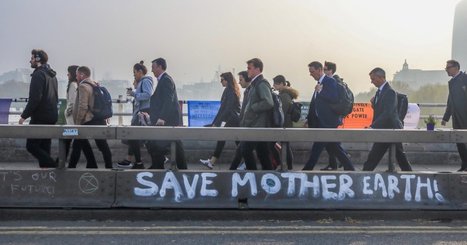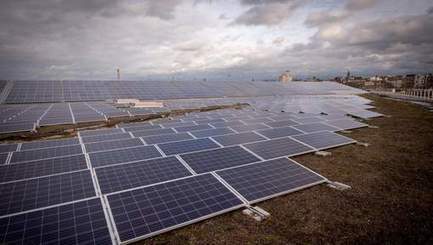 Your new post is loading...

|
Scooped by
Energy Cities
August 30, 2019 9:19 AM
|
Motorists get the lion’s share of transport space in the English city of Manchester, yet they make only a small fraction of the daily journeys, a researcher has found. Claiming to show the inefficiency and inequality baked into mass motoring the property researcher worked out that the vast majority of people who travel into Manchester every day do not travel in cars yet motorists are gifted with the bulk of the city’s transport space.

|
Scooped by
Energy Cities
July 24, 2019 3:44 AM
|
Comment accompagnez vous les habitants d'un quartier d'une ville à devenir acteurs de changement Gordon Whitman Un community organizer est un agitateur il crée des opportunités pour que les personne

|
Scooped by
Energy Cities
July 24, 2019 3:16 AM
|
It’s the people living in the affected communities who experience what the author Rebecca Solnit calls disaster collectivism.

|
Scooped by
Energy Cities
July 12, 2019 9:32 AM
|
C’est une carte bleue pour le moins original que vient de lancer la startup suédoise Doconomy en partenariat avec MasterCard. Il s’agit de la première carte bleue qui calcule votre empreinte carbone en fonction des achats que vous effectuez. "Au lieu d’introduire une carte de crédit premium avec des avantages qui encouragent généralement une consommation accrue, la DO black n’a qu’une caractéristique essentielle : un plafond de carbone", explique la startup.

|
Scooped by
Energy Cities
June 5, 2019 3:44 AM
|
Who hasn't tried to get rid of old habits, whether in relation to the way we eat, sleep, interact with each other, work, travel, or do sports? Who hasn't ever faced the difficulty of moving away from anchored routines to newly adopted ones? Who has ever struggled to unravel the complexity of the psychological but also social, technological and infrastructure-related mechanisms

|
Scooped by
Energy Cities
May 15, 2019 2:30 AM
|
Carbon tax has featured prominently during the EU election campaign. The key issue is whether poorer households will be expected to pay a CO2 tax, when they emit less than high earners. In an interview with EURACTIV Germany, two climate scientists discuss climate change affecting the class system and consumer behaviour.
|

|
Scooped by
Energy Cities
July 26, 2019 10:50 AM
|
The extractive nature of mass tourism is made possible by tourist behaviour, missing regulations and lacking alternatives. There has been very little work done to make tourism more responsible, sustainable and enriching for local communities. While there is a growing number of emerging NGOs, cooperatives and social enterprises to channel tourism revenues into socially meaningful initiatives, they are often isolated and do not constitute a coherent tissue of services that could help tourists spend their budget in a thoroughly responsible way, with the most positive footprint possible. Our selection of interviews and articles aims at mapping and bringing together these initiatives, understanding their functioning, strengthening the ecosystem that feeds them and helping municipalities in adopting their tourism strategies to accommodate more responsible ways of traveling.

|
Scooped by
Energy Cities
July 24, 2019 3:32 AM
|
Colorful, engaging crosswalks aren’t the norm, but they’re popping up around the country. And while they aren’t in line with federal guidelines, they have transformed streets and intersections.

|
Scooped by
Energy Cities
July 16, 2019 8:14 AM
|
Cities around the world are beginning to seriously grapple with the question of their consumption emissions — how to measure them, how to make policy to reduce them, and, perhaps most importantly, how to communicate about them.
These are politically explosive issues that bump up against personal choices about where and how we live, even who we are. There’s a reason climate policy has focused so exclusively on production emissions; it is safer ground.

|
Scooped by
Energy Cities
June 5, 2019 4:38 AM
|
The Dutch economy has around 85,000 circular activities that employ around 420,000 people (4% of all jobs). While this shows that circularity has gained a foothold in the Dutch economy, the transition towards a circular economy is not without challenges. The Netherlands, currently, has 1,500 innovative initiatives. These initiatives are slow in gaining popularity, due to people’s persisting old habits, insufficient pricing of environmental pollution and conflicting rules and regulations.

|
Scooped by
Energy Cities
May 29, 2019 5:21 AM
|
Supporters of the idea linked it to calls in the U.S. and Europe for a Green New Deal that would decarbonize the economy while promoting equality and well-being."This new paper from Autonomy is a thought experiment that should give policymakers, activists and campaigners more ballast to make the case that a Green New Deal is absolutely necessary," Common Wealth think tank Director Mat Lawrence told The Independent. "The link between working time and GHG (greenhouse gas) emissions has been proved by a number of studies. Using OECD data and relating it to our carbon budget, Autonomy have taken the step to show what that link means in terms of our working weeks."Stronge also linked his report to calls for a Green New Deal."Becoming a green, sustainable society will require a number of strategies – a shorter working week being just one of them," he said, according to The Guardian. "This paper and the other nascent research in the field should give us plenty of food for thought when we consider how urgent a Green New Deal is and what it should look like."

|
Scooped by
Energy Cities
March 20, 2019 6:38 AM
|
Un phénomène a chamboulé le secteur de l'électricité: l'essor des énergies renouvelables et, en particulier, le photovoltaïque. Cependant, la faço
|

 Your new post is loading...
Your new post is loading...



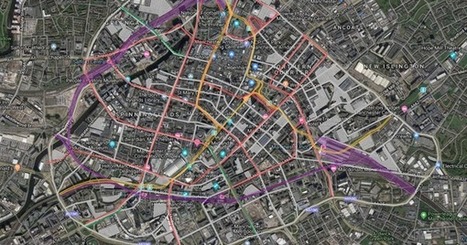

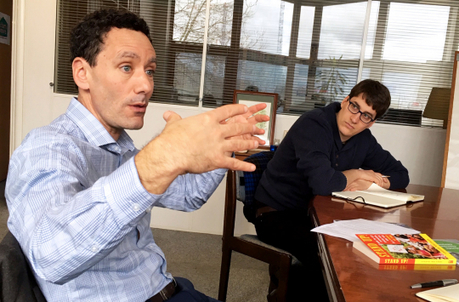

![[Bonne nouvelle] La première carte de crédit qui calcule votre empreinte carbone selon vos achats | Energy Transition in Europe | www.energy-cities.eu | Scoop.it](https://img.scoop.it/H_YOxKXXH5dTaqX3bGHUdjl72eJkfbmt4t8yenImKBVvK0kTmF0xjctABnaLJIm9)

